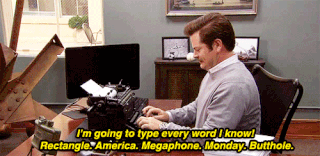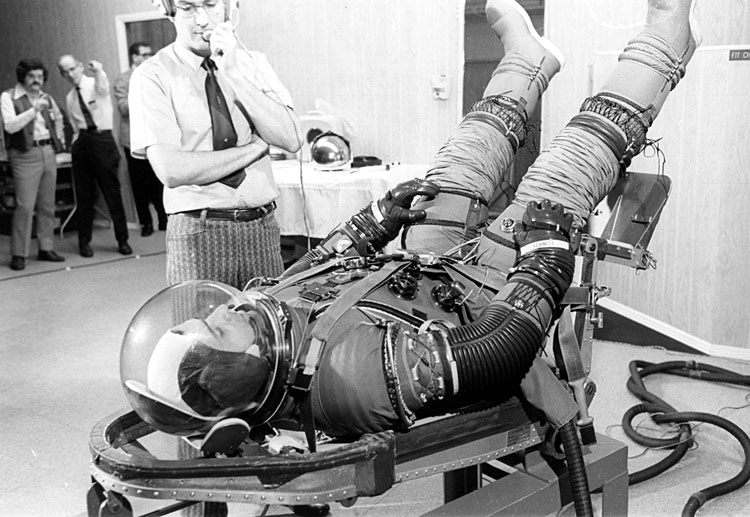From the July 30, 1901 Brooklyn Daily Eagle.
Tags: Nomee Bronson
Sweden is all but done with cash money, which is fascinating and frightening. Paper currency and coins aren’t, strictly speaking, necessary in a smartphone society, but the digital equivalent is trackable. As cookies can follow our online travels, these digital crumbs mark our every step.
“Now people can’t get away,” a Swedish street vendor tells Liz Alderman in her excellent New York Times piece on the topic. The opening:
STOCKHOLM — Parishioners text tithes to their churches. Homeless street vendors carry mobile credit-card readers. Even the Abba Museum, despite being a shrine to the 1970s pop group that wrote “Money, Money, Money,” considers cash so last-century that it does not accept bills and coins.
Few places are tilting toward a cashless future as quickly as Sweden, which has become hooked on the convenience of paying by app and plastic.
This tech-forward country, home to the music streaming service Spotify and the maker of the Candy Crush mobile games, has been lured by the innovations that make digital payments easier. It is also a practical matter, as many of the country’s banks no longer accept or dispense cash.
At the Abba Museum, “we don’t want to be behind the times by taking cash while cash is dying out,” said Bjorn Ulvaeus, a former Abba member who has leveraged the band’s legacy into a sprawling business empire, including the museum.
Not everyone is cheering. Sweden’s embrace of electronic payments has alarmed consumer organizations and critics who warn of a rising threat to privacy and increased vulnerability to sophisticated Internet crimes. Last year, the number of electronic fraud cases surged to 140,000, more than double the amount a decade ago, according to Sweden’s Ministry of Justice.•
Tags: Bjorn Ulvaeus, Liz Alderman
10 search-engine keyphrases bringing traffic to Afflictor this week:
- Perhaps the Gig Economy should be “Libertarianism with a safety net.”
- Elon Musk thinks Falcon 9’s success moves us closer to Mars.
- The U.S. Patent system needs reconfiguring in the Digital Age.
- China is making strides toward a knowledge-based economy.
- Jeff Bezos has certainly made an impact on the Washington Post.
- Eric Schmidt says humans will control AI. Not always, they won’t.
- The Pew Research Center looks at 2015 issues (e.g., immigration).
- John McAfee, a paranoid guy, thinks “World War III will be a cyberwar.”
- Maria Alexandrova, the Bolshoi’s principal dancer, talks controversies.
- An opioid epidemic is helping to kill middle-aged Americans.
- Taffy Brodesser-Akner eulogizes the pro wrestler Roddy Piper.
- Risk management might be coming to professional sports.
- Old Print Article: How Benjamin Harrison recovered his father’s stolen corpse.
- A brief note from 1902 about sheepmen vs. cowboys.
- This week’s Afflictor keyphrase searches.
By the 1960s, Glenn Gould believed the new technologies would allow for the sampling, remixing and democratization of creativity, that erstwhile members of the audience would ultimately ascend and become creators themselves. He hated the hierarchy of live performance and was sure its dominance would end. It was probably partly a rationalization that helped enable his reclusiveness, but rise up the audience did.
From his 1982 New York Times obituary by Edward Rothstein:
Mr. Gould himself seemed to grow out of no particular musical tradition. He stressed, in fact, that his musical goal was to rethink the repertory in a radically different fashion. Though he had a career of nine years as a popular and critical success on the concert stage, after a performance in Chicago in March 1964, he never played in public again; after 1967, he said, he never even attended a concert.
He said he considered the concert form an ”immensely distasteful” musical compromise that leads to ”tremendous conservatism” in musical interpretation. Mr. Gould contended that the concert’s aura of commerce, its performing stage and its listening audience interfere with music, turning the artist into a ”vaudevillian.”
”The concert is dead,” he proclaimed. For him, the recording represented the musical future. Mr. Gould was also among the first classical musicians to treat the recording as a distinct art form, with its own possibilities and requirements. The phonograph record, for Mr. Gould, was no more a ”record” of an actual continuous performance than a movie was a record of actual continuous events. It was a spliced construction, edited from recording tape.
”During the last 15 years,” Mr. Gould said in an interview last year, ”I spent very little time at a recording session actually recording.”
About eight minutes an hour were spent at the piano, he explained, producing perhaps four different versions of two minutes of music. The rest of the hour would be spent editing, choosing aspects of one version to merge with those of another. His recording of Sibelius’s works, for example, experiments with different aural atmospheres in each musical section. In his most recent recordings, he acted as producer, working in his own studio.
The musical result could be a concentrated interpretation, put together with as much care as a film editor might put together a movie. Mr. Gould believed such pastiche no more detracted from spontaneity and energy than editing would detract from a well-paced film.
The results, though, have been controversial.•
“I detest audiences,” Gould tells that magnificent bastard Alex Trebek (unseen) in 1966.
___________________________
From a 1969 Life piece in which Oriana Fallaci recalls her misbegotten interview with Muhammad Ali:
Question:
Has anyone actually threatened to break your nose off for something you wrote?
Oriana Fallaci:
Something like it happened with Cassius Clay. I had seen him a couple of times, and I went back to his house in Miami to finish the interview. He was eating a melon. I said, Good Morning, Mr. Clay. He keeps on eating the melon and suddenly belches very loud. I think he is just being impolite and I sit down with my tape recorder. And then oooaaagh. He belches again. A big one. Well, I said, let’s go on anyway. And just at that moment, buurp, buurp, whoops, whoops. I turned to him and shouted, I am not going to stay with an animal like you. And I was undoing my recorder, when he took the microphone and threw it against the wall. My microphone! I saw it flying past my head and I took my fists and bam, bam. Went against him. He stood there. So enormous. So tall. And he watched me in a way an elephant watches a mosquito. Black Muslims suddenly came out of all the doors into the room. Evil. Evil. They began to chant. You came for evil. It was like a nightmare. I backed out to my cab, trying to keep my dignity, but really afraid, and went straight to the airport. After the interview was published, Cassius Clay said he was going to break my nose if he ever saw me again. I said, we’ll see, if he breaks my nose, he is going to jail and we will have beautiful news in the papers. I saw him later in New York. I passed with my nose in the air, and he went by without looking at me.•
In 1976, when he was already showing the early, subtle signs of Parkinson’s Syndrome, Muhammad Ali sat for a wide-ranging group interview on Face the Nation, in which he was mostly treated as a suspect by a panel of people who enjoyed privileges that were never available to the boxer. Fred Graham, the Arkansas-born correspondent who’s distinguished himself in other ways during his career, doesn’t come across as the most enlightened fellow here, asking at one point, “Is there ever going to be another Great White Hope, a white heavyweight who will come in and whip all you black heavyweights?” Hyper-political earlier in life, Ali dodged election-year questions as much as possible.
___________________________
Sailor, fisherman, OSS spy and all-around non-conformist, actor Sterling Hayden was ultimately as interesting just being himself as he was when inhabiting a character. In Kim Morgan’s 2014 LARB roundtable interview with Robert Altman collaborators Elliott Gould, George Segal and screenwriter Joseph Walsh, Hayden was discussed. An excerpt:
Question:
So you, George, and Elliott were both in movies with Sterling Hayden [Loving and The Long Goodbye].
Joseph Walsh:
I loved Sterling in the movies, but I never met him personally. [To Segal and Gould] Did you love Sterling?
Elliott Gould:
I loved him. Dan Blocker was supposed to play the part. He was a very good friend of Altman’s. Dan Blocker died and the picture almost went south. And so then we were talking about John Huston, who I loved. Bob cast Sterling Hayden. So Sterling had been in Ireland doing something with R. D. Laing, the poet and philosopher who wrote a book called Knots. And so I asked to spend a little time, a moment alone with Sterling in the house where we shot, where Kathryn and Bob lived, down in Malibu. So we spent that moment alone. And so I knew that Sterling knew that I knew that Sterling knew that I knew that Sterling knew that I understood him. So I just loved him.
Question:
Did you ever read his book Wanderer?
Elliott Gould:
Yes. When he kidnapped his kids, right?
Joseph Walsh:
I liked the way he wanted to live his life, Sterling Hayden.
Elliott Gould:
I visited him on his péniche, which is like a barge. He had it in France on the Seine and I saw him there. And then he had it sent to Northern California and I visited him there too. He was a great guy. I think he worked in the Yugoslavian Underground during World War II.
Joseph Walsh:
Did he really? Wow. Okay.
Question:
And what’s interesting in The Long Goodbye is this modernized Marlowe, from what Bogart or Powell did but …
Elliott Gould:
Oh, Humphrey Bogart was perfect. Our Marlowe was not perfect at all.
Question:
No, of course. But that’s what I love about it. And that Sterling Hayden, who is now an icon in film noir, he’s really this counterculture type of guy in real life. He fit perfectly in that Altman universe.•
In 1981, Hayden, a restless soul who began looking late in life like Tom Waits’ hobo uncle, visits with Tom Snyder for a long-form interview. In part one, Hayden discusses his failed attempts at writing an article for Rolling Stone about the funeral of Yugoslavia’s late dictator Marshal Tito.
John McAfee may be a little crazy, but that doesn’t mean he’s wrong: The sky, sooner or later, will fall. In a recent IBT column he co-wrote with Rob Loggia, the online security expert asserts that “World War 3 will be a cyberwar,” which doesn’t seem a farfetched prognostication. In explaining our lack of preparedness for the new normal of battle, McAfee draws an analogy to the Civil War, when weapons had quietly become so advanced that timeworn strategies were rendered surprisingly useless. An excerpt:
Machines Turned Against Us
So what happens when an army or nation, even a seemingly well prepared army or nation, enters or is drawn into conflict unaware that the rules of engagement have changed?
One thing that happens can be seen by looking at the American Civil War. Advances in weaponry and equipment had rendered traditional tactics obsolete, and neither side was aware of it. The result of them not realizing this was tremendous bloodshed.
When the Civil War erupted, both sides entered into the engagement assuming an outmoded form of conflict. Generals on both sides had rigorously studied tactics and strategy manuals based in the Napoleonic era, and followed them during the first part of the war. The result was bloodbaths like Antietam and Fredericksburg.
What happened was that the weapons they had, though they looked much like weapons from Napoleon’s era, were in many cases far more advanced, accurate and deadly. Previously sound offensive tactics were now literally suicidal. Both armies had to learn this the hard way. As the war developed, later battles were characterized more by trenches and fortifications than open battlefields.•
Tags: John McAfee, Rob Loggia
George Pao at the Pew Research Center has published “15 Striking Findings from 2015,” which looks at counterintuitive truths, some of which comment on America’s xenophobic fears. Three examples:
3. For the first time since the 1940s, more immigrants from Mexico are leaving the U.S. than coming into the country. The shift is due to several reasons, including slow economic recovery after the Great Recession that may have made the U.S. less attractive, as well as stricter enforcement of U.S. immigration laws, particularly at the border.
8. People in countries with significant Muslim populations express overwhelmingly negative views of ISIS, according to our spring survey in 11 countries. Recent attacks in Paris, Beirut and Baghdad linked to the Islamic State in Iraq and Syria (ISIS) have once again brought terrorism and Islamic extremism to the forefront of international relations. Majorities in most of the 11 countries express unfavorable views of ISIS, but the exception is Pakistan, where a majority offer no opinion.
10. Christians are declining as a share of the U.S. population, while the number of U.S. adults who do not identify with any organized religion is growing. While the U.S. remains home to more Christians than any other country, the percentage of Americans identifying as Christian dropped from 78% in 2007 to 71% in 2014. By contrast, religious “nones,” driven in large part by Millennials, have surged seven percentage points in that time span to make up 23% of U.S. adults last year.•
Tags: George Pao
I wasn’t familiar with Taffy Brodesser-Akner before 2015, then I read wonderful pieces she wrote about Kris Jenner and Don Lemon, two people I normally wouldn’t care about, and I was hooked, always looking for her byline. In the New York Times Magazine’s annual “The Lives They Lived” issue, she’s penned the postmortem for wrestler Roddy Piper, who could boast like Ali even if he pulled his punches. One of the biggest stars in the history of the business, Roderick George Toombs, as he was christened, was driven to an early death by the industry’s very real toll, dealing with the brutal schedule of slams and falls with cocaine and steroids and painkillers and sleeping pills. The act of constantly living a fantasy also exacted a price, as his public comments were often puzzling, a mix of carny kayfabe and ill-advised opinions. You weren’t sure if his words were a work, and he didn’t seem certain, either.
The short piece doesn’t delve into Piper’s demons but instead focuses on his impact on the boom period of the 1980s, when the pseudo-sport went national. An excerpt:
Piper (né Roderick George Toombs) was hired by the W.W.E. in 1984 as a manager. When he finally made it into the ring a year later, it was as a villain, to engage in vicious rivalries with everyone from Andre to Mr. T (at the height of his A-Team fame). His theatrical loathing for his opponent made the matches magnetic, and he became the most beloved hated man in the W.W.E. universe. And his ability to bring all those crazy feuds to life during his interviews energized story lines in a way the W.W.E. had never before been able to successfully pull off.
With Andre, Piper asks if it’s true that Big John Studd body-slammed him. No, Andre says, it isn’t. Piper, neck veins pulsing, suggests that even he could body-slam him. Interview over. Andre grabs Piper’s shirt, uses it to fling him across the room and walks off the set. Piper, red-hot with rage, screams, ‘‘You think you’re tough?’’ He stares into the camera and does an Incredible Hulk pose that shows off his terrifying trapezius muscles. ‘‘You ain’t nothing!’’ You have never seen a man so committed to seeming to have lost all control.
Piper never won a world championship, but he didn’t need to. He was the W.W.E.’s hero, his energy a shot of adrenaline into wrestling’s weary heart. In 2005, he was inducted into its Hall of Fame. And in July, when he died in his sleep from cardiac arrest at 61, it was hard not to think that he had used up all his energy prematurely, keeping all those other clowns afloat for so many years.•
Plenty of bright people handicapping the Mars-or-bust business make sound arguments for why states will ultimately win the new public-private Space Race (costs chief among them), but one of the least convincing is that massive wealth won’t necessarily fall to those who pioneer in this area, thereby reducing the ambition of corporations. That’s a misunderstanding of the mindset driving Musk, Bezos, etc. Most of the Earth moguls in the competition are looking for currency of a different sort–to leave their mark on humanity in a large-scale way never before possible. As is the new custom of Silicon Valley, a place awash in riches, money itself is a secondary measuring stick.
From Miriam Kramer’s Mashable piece about what the Falcon 9’s success means for Musk’s Mars dreams:
“I think that there’s so much more to understand and learn about the nature of the universe, and that understanding will grow proportional to the scope and scale of civilization,” Musk said during the meeting. “The probable life span of human civilization is much greater if we’re a multi-planet species as opposed to a single-planet species.”
In Musk’s mind, to turn that vision into reality, companies need to start bringing the cost of spaceflight down dramatically, and one way to do that is through building reusable rockets.
At the moment, it costs companies about $60 million to buy a SpaceX Falcon 9, but only about $200,000 of that is the cost of the fuel needed to launch the rocket and payload to orbit.
Most rockets today are built to be discarded once they deploy their expensive satellites, cargo or even people into space, but that’s not the way Musk wants to do things.
In Musk’s vision of the future, a fleet of reusable rocket stages will be able to fly multiple payloads to orbit over the course of their lifetimes, effectively slashing the cost of spaceflight, Musk said. Instead of this once-use mentality, Musk hopes that rockets will be more like airplanes in the future.
“I think it is critical step on the way towards being able to establish a city on Mars,” Musk said during the press conference. “Because I think quite vital to that goal is reusability in orbit-class rockets. It is really fundamental to that goal. Without which it would really be unaffordable.”•
Tags: Elon Musk, Miriam Kramer
Blessed is the journalist who can make patent law interesting, and Christopher Mims of the Wall Street Journal is just such a writer. In his latest column, Mims thinks through the litigious hoverboard industry. While the sudden popularity of this personal-transportation device may ultimately be as fleeting as that of any other trendy merch, the welter of lawsuits surrounding it are meaningful. Mims explains how our patent system isn’t likely to protect Shane Chen, who claims to have invented the technology, but may actually make is easier to crush him.
An excerpt:
The original in this case would be the Hovertrax, made by Inventist, in Camas, Wash., near Portland, Ore. Inventist founder Shane Chen claims he invented the hoverboard, and holds a patent, having first filed an application in 2012. After a brief dalliance with entrepreneur Mark Cuban, Inventist last month licensed the Hovertrax to Razor USA, maker of the eponymous scooter.
One reason for the deal, says Joalene Jolivette, head of sales at Inventist, is that Razor has more resources to sue the biggest importers of hoverboards from China. “Razor has spent over $1 million inside of a week dealing with cutting off some of the knockoffs into the states,” she says.
Neither Inventist nor Razor would say how many lawsuits that represents, but their legal action against the maker of IO Hawk hoverboards is public, and a lawyer for hoverboard company Swagway told me that company is being sued as well.
At this point it might sound like the patent system has done its job—to “allow someone to profit from inventions which are expensive to invent but easy to copy once made,” says Christina Mulligan, an assistant professor at Brooklyn Law School who specializes in Internet and intellectual-property law.
But it isn’t that simple.•
Tags: Christopher Mims, Shane Chen
With all the Ivy League lawyers, MBAs and statistical gurus rattling around the halls of Major League Baseball front offices, it’s difficult to believe teams don’t already have their own proprietary risk-management systems in place, but Sapient Global Markets aims to fill that niche in all sports, providing stress tests or something like them for franchise’s macro and micro decisions.
From Nick Cafardo at the Boston Globe:
Dave Donovan figures what’s good for banking and the financial industry is good for baseball and sports in general. So the managing general partner of Sapient Global Markets in Boston is bringing risk management to major sports.
Donovan, a Marblehead native and Natick resident, is talking to teams about building financial risk management models to help make better financial decisions and protect their assets — essentially their players.
“Because there’s such an emphasis by teams on acquiring the right players, especially now where you have financial constraints with luxury taxes, etc., we’re looking at it the same way as we do with banks,” Donovan said. “Banks want to make as much money as they possibly can. Their constraint is regulation. They have stress tests they have to do for the government after banks almost took down the world because they weren’t financially compliant. We’ve been working with these banks to measure their risks and you can apply the same concepts in sports.“Banks have portfolios of securities and they need to have those securities managed in a way that they can understand their risks at all points, 24/7. They measure it against a number of outstanding events that could happen that could potentially affect that portfolio, whether it be oil rising to $100 a barrel or unemployment going up to 10 percent or a nuclear war and a number of other things. We model against that. In baseball, you can do a similar exercise and get a good read on your portfolio.
“Your roster is no different than a portfolio of securities. Those are your assets. That’s what you’ve put your investment in, so it only makes sense that you should monitor your assets.”
Sapient Global Markets can build models for any situation, including individual players, by using formulas and calculations based on the data that is important to each team.•
Tags: Dave Donovan, Nick Cafardo
If Alphabet Chairman Eric Schmidt truly believes that his company’s long-term goal is to turn out machines that are under human influence, I would have to assume he hasn’t been to the office very much lately. In what sounds like a PR offensive, Schmidt and co-writer Jared Cohen have penned a Time essay asserting that when it comes to Artificial Intelligence, humans will keep their hands on the wheel, if not literally. As if anyone can promise that once AI makes more major strides.
An excerpt:
Based on the work of DeepMind, which is involved in AI research, we believe that makers of AI should adhere to the following principles. First, AI should benefit the many, not the few. In practical terms, AI has the potential to help the doctor and the patient, the business and the employee. As a society, we should make use of this potential and ensure that AI always aims for the common good.
Second, AI research and development should be open, responsible and socially engaged. As we continue developing AI, new questions will continue to arise, and we will need to answer them collaboratively, including everyone from engineers and scientists to philosophers and activists. In particular, those whose industries will change as a result of AI will need to be part of this global conversation.
Third, those who design AI should establish best practices to avoid undesirable outcomes. Is a system doing what we need? Are we training it using the right data? Have we thought through the way any system might yield unintended side effects—and do we have a plan to correct for this? There should be verification systems that evaluate whether an AI system is doing what it was built to do.
We are building tools that humans control.•
Tags: Eric Schmidt, Jared Cohen
Well, this is rather macabre. In 1878, a decade prior to his Presidency, Benjamin Harrison investigated a number of Ohio medical colleges in search of the stolen corpse of a deceased family friend and was aghast to come face to face with his own freshly fallen father, John Scott Harrison. The jaw-dropping tale isn’t quite as surprising as you might think, as that state was known in those years for the brisk business conducted by so-called resurrectionists, who were often in cahoots with academics in need of cadavers. Despite the public outcry caused by the scandal, the Dean of Ohio Medical College acknowledged he would likely continue buying stiffs from grave robbers. The full story from the March 13, 1910 New York Times:
One of the strangest, and at the same time the most gruesome stories that ever reached a newspaper office was told by H.E. Krehbiel, the musical critic, the other night. Though it reached a newspaper office and has been known to a few persons in the twenty years succeeding, it was not printed when the incidents happened, because those concerned took the precaution of narrating them in confidence. Here it is, however, as Mr. Krehbiel tells it, long after those most intimately concerned are dead:
“Many years ago I was at work one afternoon in the offices of a Cincinnati newspaper when Benjamin Harrison, afterward President of the United States, and his brother came into the office and began a long conversation with the city editor. They spoke in low tones, which did not reach beyond the desk where they were sitting.
“After nearly half an hour had elapsed the city editor called me over to him and introduced me to the two gentlemen, both of whom seemed to be laboring under strong emotion. Benjamin Harrison appeared to be especially affected. This did not surprise me very much, as I was aware that they had only buried their father, to whom they were both devotedly attached, a few days before. The city editor instructed me to take down their story, giving me also explicitly to understand that, whereas, I was to listen to all they had to say, I was to write no more, and the paper was to print no more than they should decide.
“Now,” continued Mr. Krehbiel, “this is what Benjamin Harrison told me. A few days before the death of his father, the husband of a dear old German woman who lived near their farm also died and was duly buried. When he came from the East to attend his own father’s obsequies this old woman went to him in great distress and told him that the grave of her husband had been opened and his body stolen. Those were the days of body snatchers or ‘resurrectionists,’ before the State had made provision for subjects for medical colleges.
“Mr Harrison went on to say that his old German friend’s distress was so intense that he and his brother had themselves undertaken a search for the body in Cincinnati. This search had occupied them two days and had just ended.
“‘We swore out a search warrant and took a constable with us,’ said Mr. Harrison. ‘One by one we have been to every medical school in the City of Cincinnati. It was a terrible ordeal for us, especially as our own grief was fresh and poignant. We kept up the search without inkling, clue or result, until we had visited every medical school in Cincinnati except one.
“‘The last one was the Ohio State Medical College. We went over there more as a formality than anything else. With search warrant and constable we were enabled there, as elsewhere, to have everything opened to us. We found nothing.
“’Just as we were about to leave the college the constable noted a shaft such as is used in apartment houses. Down this shaft hung the ropes of a hoist. The constable went up to the ropes of a hoist and took hold of the taut rope. He turned to me sharply, saying that there was a weight on the hoist. I told him to pull it up. He did so.
“’Attached to the rope by a hook was the body of my own father. They had known at the colleges whose the body was. They had taken this fiendishly ingenious method of moving it from floor to floor as we in our search had moved from one floor to another.’
“This,” said Mr. Krehbiel, “is the story in Benjamin Harrison’s own words just as he gave it to me.”•
While it won’t much help those who’ve invested their lives in the value of a taxi medallion, it would be beneficial to a growing population of workers if we could figure out a way to protect employees participating, willingly or otherwise, in the Gig Economy. In his latest Financial Times column, Tim Harford has a suggestion: “Libertarianism with a safety net.” If that sounds oxymoronic, it’s intentional. The writer believes we need to consciously uncouple the welfare and corporate states, providing assurances to all citizens so that they can be unmoored without being at risk.
An excerpt:
Are Uber drivers employees or not?
Uber maintains that they are not. That seems defensible: a driver can switch the app on or off at any time, or work for a competitor such as Lyft on a whim. Few employees who acted in this way would be employed for very long.
Then again, does a driver who puts in 60 or 70 hours a week providing Uber-assigned rides according to Uber-determined rules and rates not deserve some sort of security? Some authorities think so: the company has lost a number of rulings in California as judges and arbitrators have found that, in certain cases, Uber drivers are employees.
Such judgments are likely to vary from case to case and place to place, and the uncertainty helps nobody bar the lawyers. Alan Krueger, former chairman of President Barack Obama’s Council of Economic Advisers, draws a parallel with the emergence of the workers’ compensation system a century ago. Sensible rules were agreed, he says, once lawsuits over industrial accidents became expensive and unpredictable.
But what should the new rules be?•
Tags: Tim Harford
You’ve probably had a hectic Christmas season and so has Santa Claus. He’s been busy overseeing his new automated workshop in the North Pole. The elves can go fuck themselves. Robots work for free and they’re not a bunch of sassy little bitches. Good luck in the world of fetish porn, you tiny ingrates. Hope your mini mouths don’t get too tired from all the sucking.
Santa also purchased a pharmaceutical company and he’s going to gouge patients who need AIDS drugs like there’s no tomorrow. I mean, those Wu-Tang albums ain’t gonna pay for themselves. In fact, the big guy has gone full-on capitalist and his interests now include making wealth inequality worse and spending like a Koch brother to prevent Obama from winning a third term. (Yeah, I know, but don’t tell him.)
Santa’s actually feeling pretty good these days. Thanks to those intermittently useful evangelical dipshits, conservatives run the House and Senate and are only a Ted Cruz Presidency from making the U.S. a complete corporatocracy.
Oh, and he isn’t giving your asshole children toys for free this year. You’ll pay retail, bitches.
You don’t like Santa’s vision? Well, he thinks you should go scratch your ass with a broken eggnog bottle. Santa’s a pimp and you’re a ho ho ho!•
Americans misunderstand December 25 even as they celebrate it. One example is the song “I’ll Be Home For Christmas,” which is commonly perceived as a nostalgic and heartwarming ode when it’s one of the saddest pieces of music imaginable, a tearful tune about someone not being able to make it back to their loved ones. The crushing line (“If only in my dreams”) seems to have been psychologically elided the way the suicide threat tucked in neatly at the end of Sinatra’s plucky Horatio Alger classic “That’s Life” was. It’s not so much about embracing hope as willful ignorance.
Of course, the Fox News “War on Christmas” is a much larger philosophical disconnect, where non-Christians are somehow a threat to a Christian country. It’s just another scattershot reaction to the crumbling of the American middle class stoked by Roger Ailes’ hot-air machine. The formerly privileged know something they used to have has been stolen from them and assume, for some reason, that it involves Christ-ified consumerism.
As the tug of tinsel goes, so does U.S. politics, an unholy rabble bent on crucifying the truth. Objective information is beside the point. It all depends on what you wish for.
From Edward Luce at the Financial Times:
Once upon a time, Americans settled around the television to enjoy a white Christmas together. Nowadays, it seems, they are too entrenched on opposite sides of the “war on Christmas”, or commoditising it to oblivion, to remember Bing Crosby’s crooning. To say the US is a civilisation divided may strike some as an overstatement
For the most part, the country still speaks one language. Black and white, straight and gay, Jewish and Muslim all flock to the latest Star Wars movie. Interest in the Oscars and the Super Bowl obliterates sociological distinction. So too does fear of economic insecurity. These things unite most Americans.
Yet the things that divide the country are growing. If you listen to the Republican presidential debate, one message overrides all. Conservatives do not just disagree with President Barack Obama — they hate him profoundly. When asked if they would back a Donald Trump nomination, even the most moderate Republican says anyone would be better than this “feckless, weakling” president, to quote Chris Christie, the New Jersey governor.
Likewise, if you ask a liberal about today’s Republicans, it does not take long before the word “stupid” is used. People who support Mr Trump are idiots. People who oppose him must be snobs. The two sides neither speak to each other, nor obtain their “information” from the same outlets. Facts are what you feel comfortable believing. No one in your social group is likely to challenge you.
Is the idea of America as a republic of shared values under threat?•
Tags: Edward Luce
If the recent Anne Case-Angus Deaton research is correct, America’s former middle class is dying, and not just metaphorically.
While other ethnic and racial groups are holding steady or making gains, caucasians in the U.S. are perishing in middle age at an increasingly alarming rate. Suicides have spiked as have overdoses. Why this ugly turn? Perhaps something to do with the financial collapse of 2008 and the very lopsided recovery? Maybe the decline of the white working class in a globalized, technologized world minus the safety net of unions and progressive taxes? Could it just be the cheaper “weapons” (e.g., opioids) at hand?
From a Centers for Disease Control release:
The findings show that two distinct but intertwined trends are driving America’s overdose epidemic: a 15-year increase in deaths from prescription opioid pain reliever overdoses as a result of misuse and abuse, and a recent surge in illicit drug overdoses driven mainly by heroin. Both of these trends worsened in 2014.
More than six out of 10 drug overdose deaths in 2014 involved opioids, including opioid pain relievers and heroin. The largest increase in opioid overdose deaths involved synthetic opioids (not including methadone), which were involved in 5,500 deaths in 2014, nearly twice as many as the year before. Many of these overdoses are believed to involve illicitly-made fentanyl, a short-acting opioid.
In addition, heroin-related death rates increased 26 percent from 2013–2014, totaling 10,574 deaths in 2014. Past misuse of prescription opioids is the strongest risk factor for heroin initiation and use—especially among people who became dependent upon or abused prescription opioids in the past year. The increased availability of heroin, its relatively low price (compared to prescription opioids), and high purity appear to be major drivers of the upward trend in heroin use, overdoses, and deaths.•
Russia in the time of Vladimir Putin, a capo with nuclear capabilities, is the strangest thing. A kleptocracy littered with petro-oligarchs and poisoned journalists, it’s hard to get to the truth even when everyone knows where it lies.
Even beyond the Kremlin, the deaths can be shockingly violent and the crimes baffling and awful. Case in point: the Bolshoi Ballet, that grand thing, became a lurid headline after a sulfuric acid attack on its artistic director, Sergei Filin, at the outset of 2013.
As HBO prepares to screen Bolshoi Babylon, the New York Times’ Gia Kourlas (an excellent person I worked with once) has scored an interview with the Bolshoi’s usually reticent longtime principal dancer, Maria Alexandrova. It speaks to the opaqueness of the company and the wider culture.
The opening:
New York Times:
Do you have much contact with Sergei Filin?
Maria Alexandrova:
We practically have no relationship. He just basically publishes on the board what performances he wants me to dance, and I dance them. We say hello to each other as civilized people, but we have no relationship whatsoever. I’m not outside his office begging for parts. He gives me the parts. I dance them. And what he gives me, I use the opportunity and what he doesn’t, I use that opportunity to be involved in other projects.
New York Times:
Was it like that before the acid attack too?
Maria Alexandrova:
Before that, when he was dancing, he was my main partner for eight years. [Nikolai] Tsiskaridze and Filin were my main two partners. You don’t necessarily have to love or hate someone; you just get on with it. There was no conflict. In Russian ballet, there are no easy people. We’re all difficult characters. Some are more intelligent and some are less intelligent, but you don’t have any people in Russian ballet who are angelic with easy characters. We live in a difficult country; we work in a difficult theater; we depend only on ourselves or you find whichever other way you want.
New York Times:
Within the Bolshoi, people took sides after the acid attack: Filin’s or Dmitrichenko’s? [The dancer Pavel Dmitrichenko was found guilty of arranging the attack and sentenced to five and a half years in prison.] Which were you on?
Maria Alexandrova:
I chose the theater. I chose my profession. The hardest thing is to explain to people within the company, yes, a terrible tragedy has happened, but it’s part of life, and we should not take sides and divide people between good and bad and black and white. That was always my position. We should think of our profession; we should think of our theater. Even now, I am absolutely deeply convinced that we still don’t know the truth of what really happened and why it happened.•
Tags: Gia Kourlas, Maria Alexandrova, Sergei Filin
10 search-engine keyphrases bringing traffic to Afflictor this week:
- norman mailer interview
- charles r. knight dinosaur art
- alvin toffler looking back on future shock
- amos bronson alcott fruitlands
- the discovery of king tut’s tomb
- anjelica huston jack nicholson
- stanley milgram’s obedience study
- project nim monkey
- marilyn chambers interview tom snyder
- chuck connors mayor of chinatown

This week, Donald Trump acknowledged that in addition to Vladimir Putin, there’s another great leader he admires.
- Edward Luce asks if America is turning into a game-show democracy.
- Rand Paul didn’t find a Libertarian nirvana in Silicon Valley.
- Elon Musk, who fears AI. wants it to be widespread.
- Foreign Affairs argues the “Fourth Industrial Revolution” may be fraught.
- In the early Digital Age, human middlemen might still be useful.
- 1 in 10 U.S. homes will own a robot by 2020. Everyone else: homeless.
- New technologies have made some professions more demanding.
- Info we share reveals more than we think once it’s crunched by algorithms.
- For now, the U.S. military wants humans and machines to work together.
- We can’t free ourselves of drudgery unless we rethink the work ethic.
- Marjorie Prime meditates on AI’s complicated impact on memory.
- Adrienne Lafrance examines the driverless-car competitors.
- A 1971 video recalls the Road Research Laboratory’s robocar.
- Positivists like Steven Pinker may be overlooking an explosive truth.
- Some employers are subsidizing genetic screening for workers.
- TV wants to collect your data to personalize ads.
- Tom Carson looks at the history of American TV families.
- Simon Winchester isn’t reading any stories about zombies.
- Dwight Garner is mostly sour on the Terry Southern letters collection.
- Old Print Articles: Jacques Inaudi was a lightning calculator (1901).
- A brief note from 1922 about insect head transplants.
- A brief note from 1899 about wedding crashers.
- This week’s Afflictor keyphrase searches.
One of the most fun pieces ever from the old-school Holiday magazine centered on very far-flung travel. It was Arthur C. Clarke’s 1953 prognostication of Mars as residential address and pleasure destination. An excerpt:
So you’re going to Mars? That’s still quite an adventure—though I suppose that in another ten years no one will think twice about it. Sometimes it’s hard to remember that the first ships reached Mars scarcely more than half a century ago, and that our settlement on the planet is less than thirty years old.
You’ve probably read all the forms and literature they gave you at the Department of Extraterrestrial Affairs. But here are some additional pointers and background information that may make your trip more enjoyable. I won’t say it’s right up to date—things change so rapidly, and it’s a year since I got back from Mars myself—but on the whole you’ll find it pretty reliable.
Presumably you’re going just for curiosity and excitement; you want to see what life is like out on the new frontier. It’s only fair, therefore, to point out that must of your fellow passengers will he engineers, scientists or administrators traveling to Mars— some of them not for the first time—because they have a job to do. So whatever your achievements are here on Earth, it’s advisable not to talk too much about them, for you’ll be among people who’ve had to tackle much tougher problems.
If you haven’t booked your passage yet, remember that the cost of the ticket varies considerably according to the relative positions of Mars and Earth. That’s a complication we don’t have to worry about when we’re traveling from country to country on our own planet, but Mars can be seven times farther away at one time than at another. Oddly enough, the shortest trips are the most expensive, since they involve the greatest changes of speed as you hop from one orbit to the other. And in space, speed, not distance, is what costs money.
The most economical routes go halfway around the Sun and take eight months, but as no one wants to spend that long in space they’re used only by robot-piloted freighters. At the other extreme are the little super-speed mail ships, which sometimes do the trip in a month. The fastest liners take two or three times as long as this.
Whether you’re taking the bargain $30,000 round trip or one of the de luxe passages, I don’t know. But you must be O.S. physically. The physical strain involved in space flight is negligible, but you’ll be spending at least two months on the trip, and it would be a pity if your appendix started to misbehave.•


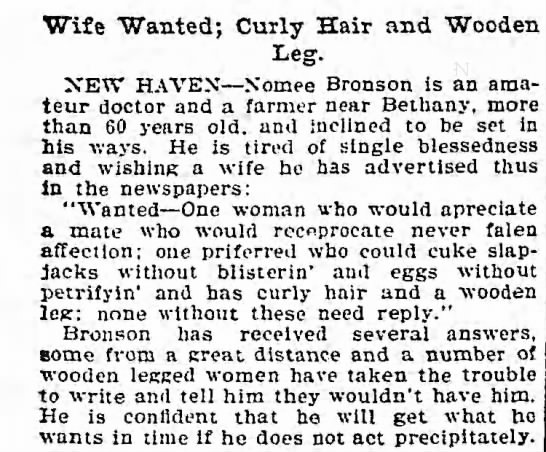










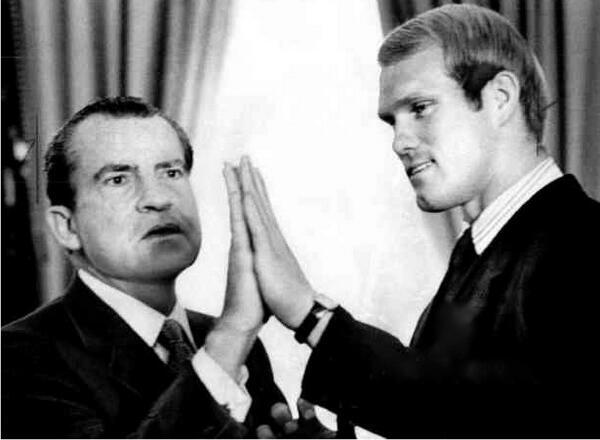









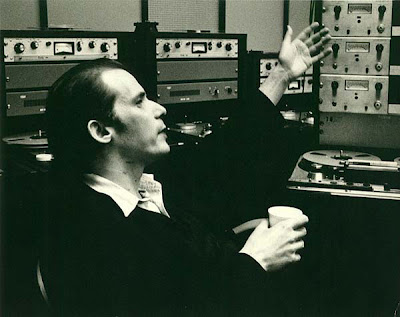
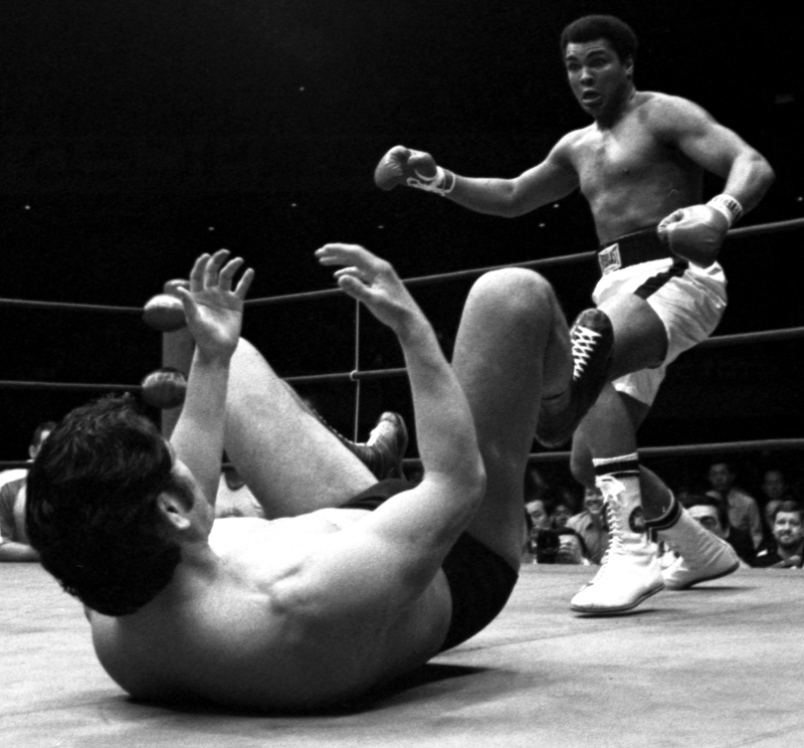

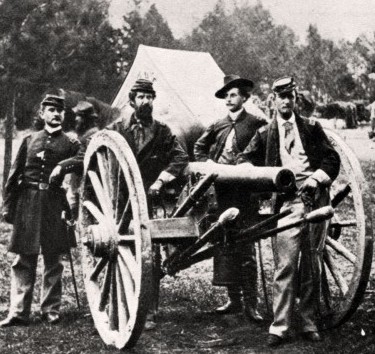

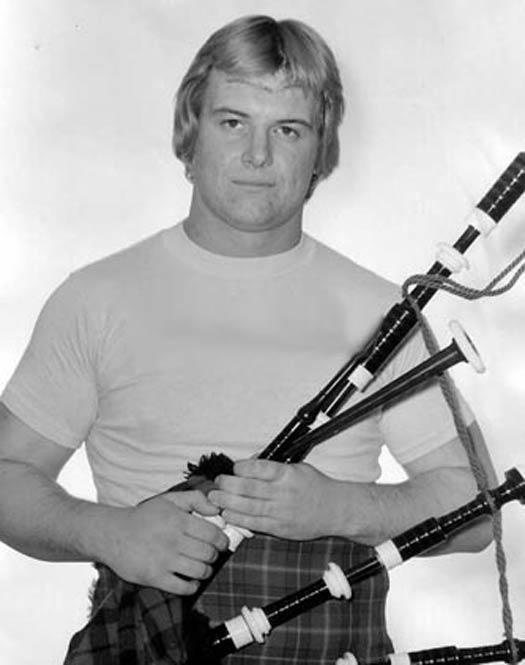

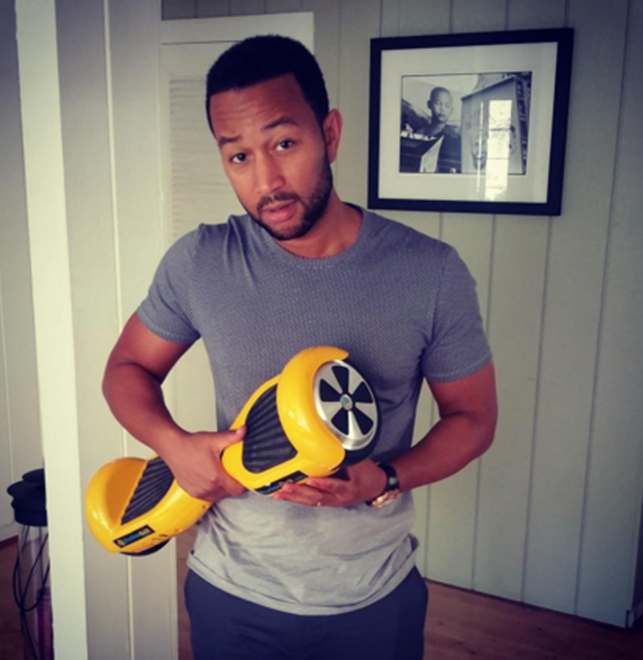
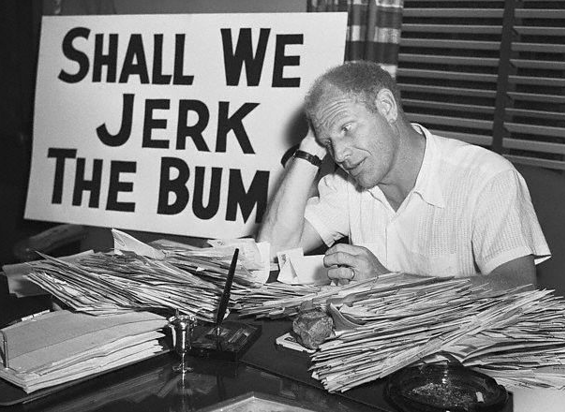
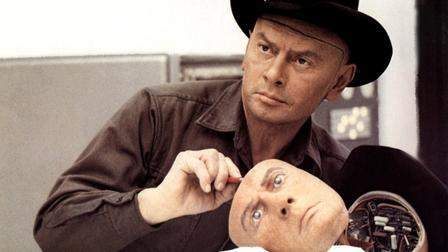
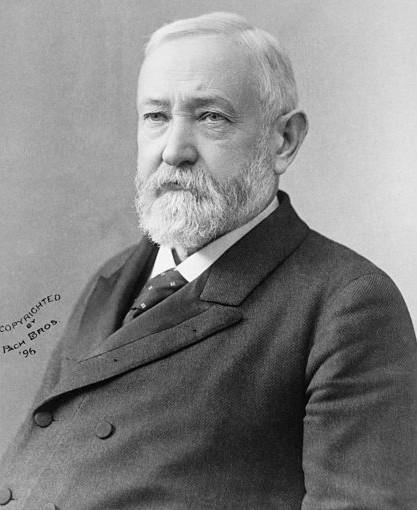
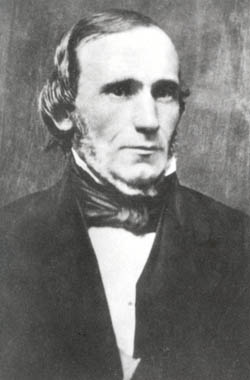
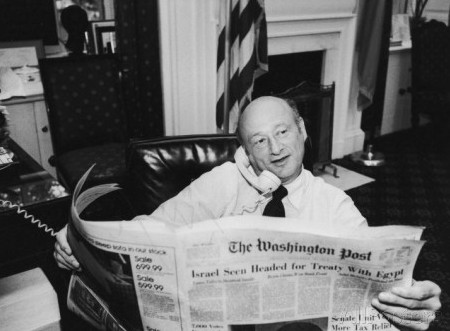


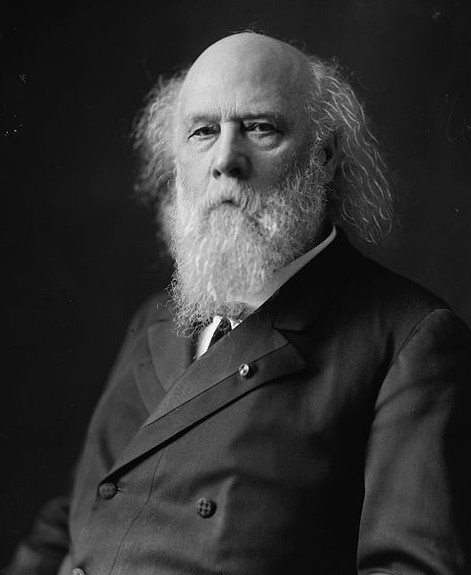


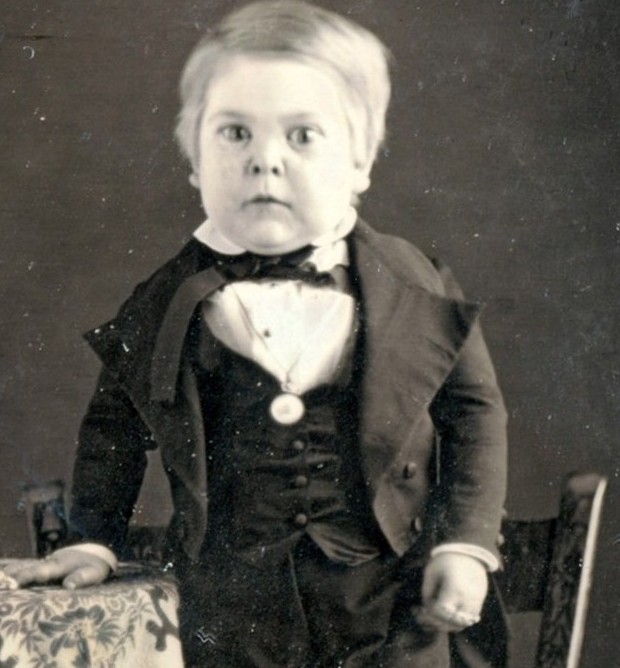



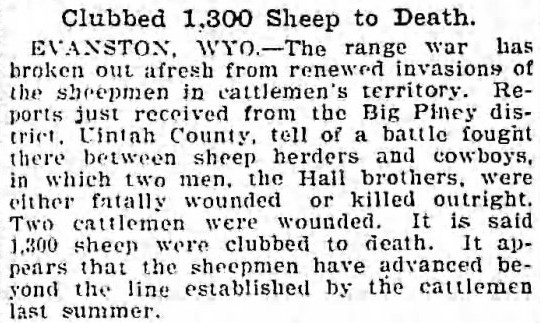
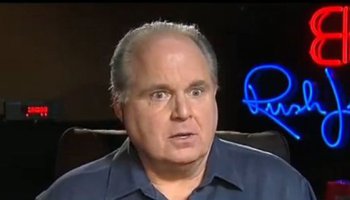
![6.772657_BOLSHOI_BABYLON_MARIA_ALEXANDROVA[1]](https://afflictor.com/wp-content/uploads/2015/12/6.772657_BOLSHOI_BABYLON_MARIA_ALEXANDROVA1.jpg)
